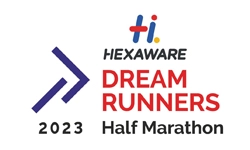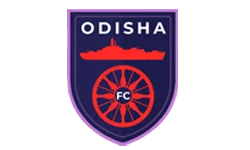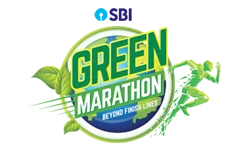Bumming one out doesn’t have to mean leaving the party if you want to keep fit and healthy. Many fitness enthusiasts often wonder, "Do I still meet my workout goals if I consume alcohol?" The good thing is it is possible to find balance between your workout and social drinking through mindful choices and moderation.
In this blog, we will study the impact of alcohol on your workouts, how to balance between fitness and social life, and answer some common questions such as which alcohol is beneficial for the body and how much time one should work out after consuming alcohol. ScienceDirect
Before we get down to balance strategies, let’s see how alcohol affects the body in line with exercise and recovery: mdpi
Alcohol is a diuretic, which means it stimulates the body to release fluids in the form of urine at a higher pace. If you are dehydrated, then your performance in workouts at any cost can be disastrous. Dehydration also adversely affects muscle recovery, risk of cramps, and fatigue.
After a workout, your body goes into recovery mode, rebuilding muscle fibers and replenishing glycogen. However, alcohol can get in the way of protein synthesis and hormone production, such as testosterone and growth hormones, which are vital in, among others, helping the body to repair and grow muscles.
Sleep quality is important for fitness progress. Although alcohol may help you sleep well by getting to sleep faster, it frequently causes a lack of sleep and fewer REM cycles, where the body repairs itself, and so you wake up feeling groggy the next day.
A commonly asked question is, how much time must you wait to work out after alcohol consumption? Frontiersin
Generally, it is best to wait 12-24 hours after heavy drinking before engaging in strenuous exercise. This allows your body to rehydrate and fully metabolize the alcohol molecules.
If you’ve been drinking heavily, it’s more prudent to miss the gym the following day. Exercise with a hangover increases the risk of dehydration, injuries, and poor performance.
Of course—timing and moderation. If you’re intending to drink after exercise, then use these guidelines:
• Hydrate first: It is best to drink a lot of water in the event of alcohol consumption to prevent exacerbating dehydration.
• Eat a nutritious meal: After your workout, take a protein and carb meal before you drink.
• Choose lighter drinks: Choose some low-alcohol-content beverages, such as a glass of wine or a light beer.
• But keep in mind: If you are aiming at fat loss, maybe you may want to forgo the drink after the workout. Alcohol gives you empty calories and may blunt the fat-burning power of your exercise.
When you always like to have a drink here and there and want to make a health-oriented decision, you may wonder which alcohol is good for health.
In this list are some healthy alcoholic drinks that can accommodate a well-balanced lifestyle:
Having antioxidants such as resveratrol, red wine taken in moderation can be beneficial to the heart. Some glass (150 ml), several times a week, is thought to be usually safe and perhaps helpful.
When served with no-calorie mixers, such as soda water or lemon juice, clear spirits have among the lowest calorie levels of alcoholic drinks. They are an accepted choice by Weight Watchers.
Light beer is less calorie and alcohol consuming than regular beer, which makes it an excellent choice on social occasions.
Although healthy alcoholic drinks exist, the thing is moderation. Too much alcohol use can take away any potential benefits and your health and fitness in general.
Alcohol isn’t your best post-workout option if your concentration is on fat loss. Instead, take a look at these options for what drink after exercise to lose weight:
• Water: Increases metabolism and replenishes your body's fluids.
• Green Tea: Has catechins that increase fat burning.
• Protein Shake: Works on muscles and keeps you feeling full.
• Electrolyte Drinks (low-sugar): Get back lost minerals without consuming extra calories.
Choosing from these after exercise is not only good for weight loss but is also a great way to put some recovery and energy back in him.
And here is how you can drink your favorite alcoholic beverages without losing your fitness track:
Save drinking for special occasions or one of the days of the week. This helps to maintain a check on your weekly calorie count and will minimize the chances of long-term health issues.
Avoid sugary mixers and stick to low-calorie drinks. For example,
• Instead of the cocktails, use vodka and lime soda.
• Go for dry wine and not the sweet one.
• Sip slowly to avoid overconsumption.
Drinking water in between alcoholic drinks prevents dehydration and does not likely cause a hangover the next day.
Exercise in the morning is not a good idea after drinking. If you know you’re going to be drinking, then plan to take a rest day, or at the very least, a light day the next day.
Drinking is associated with mindless snacking or overeating. Stay on whole, nutrient-rich foods while drinking to avoid screwing up your diet.
Absolutely. Being fit does not mean total abstention. You can party over drinks as much as you want as long as you are conscious of the choices that you make and value recovery and staying hydrated.
Just remember: moderation is key. Be truthful to yourself: how often will you be drinking, and how does it impact your performance and progress? Pick out the drink that’s good for health, stay hydrated, and your body needs time to rest before hitting the gym.
By matching your social habits with your goals for fitness, you can have it all—a robust body and a lively social life.
FAQs:
1. How can I balance working out and drinking alcohol?
To keep your fitness goals while having some drinks here and there:
• Only consume one to two alcoholic beverages per week.
• Do not drink straight after or before an intense workout.
• Hydrate properly and eat a balanced meal surrounding your drinking.
• Choose low-calorie, low-sugar drinks like vodka soda or dry wine.
2. What is the least harmful alcohol to the liver?
There is no such thing as a perfect flush of your liver with alcohol, but
• Transparent liquids such as vodkas and gins (in moderation) have fewer additives.
• Red wine can be less dangerous because of its content of antioxidants.
• Moderation is important—too much alcohol of any sort wrecks the liver.
3. What is the 20-minute rule for alcohol?
This rule helps manage cravings:
• Take a break for 20 minutes when you feel like it is time to drink.
• This little pause allows your brain to reevaluate and, more often than not, eliminate impulsive drinking.
4. Is exercise good for heavy drinkers?
Yes. Regular physical activity:
• It is heart-healthy, brain-healthy, and liver-friendly.
• Cures some ill effects that come with excessive drinking.
Note: It’s supportive, not a cure, but cutting back on alcohol is still crucial.
5. Can exercise reverse alcohol damage?
Some form of minor injury (fatty liver or weakened cardiovascular functions) can be improved by exercising continuously. The severe damage (cirrhosis or brain impairment) is most often irreversible. Exercise supports recovery but will not undo long-term damage from heavy drinking.














